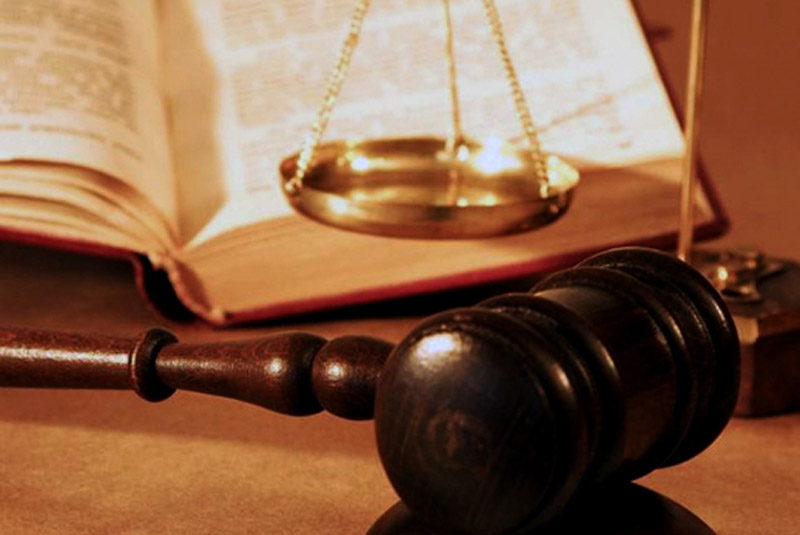Олигархи и заочное преследование


Защита бизнес-интересов в Украине для “опальных” олигархов серьезно усложнилась из-за уголовных производств, открытых против них силовыми органами.
Как результат, из владельцев финансово-промышленных групп, “враждебных” власти, на сегодня в стране остался только И.Коломойский. Да и тот уже почти год находится в СИЗО СБУ.
Фирташ: экстрадиция в бесконечности
Вот уже 10 лет как владелец Group DF Д.Фирташ не может приехать в Украину. На нем до сих пор “висят” обвинения Минюста США в даче взяток индийским чиновникам. Поэтому олигарх вынужден постоянно жить в Австрии, где обосновался на ПМЖ еще с 2000-х.
Все эти годы австрийские суды рассматривают запросы США на его экстрадицию: отклоняют, разрешают, снова отклоняют и далее по кругу.
Последнее движение по делу датируется июнем 2023 г. Тогда Высший земельный суд Вены удовлетворил апелляцию Д.Фирташа о пересмотре его выдачи американским властям. Очевидно, таким образом процедура будет затягиваться до бесконечности. А с ней и невыездной статус владельца Group DF. У Украины тоже есть к нему вопросы.
СНБО в июне 2021 г. ввел против олигарха санкции, предусматривающие блокировку активов и аннулирование лицензий на разработку месторождений титаносодержащих песков в Житомирской обл.
Эти меры стали ответом на продолжение поставок титанового концентрата с украинских горно-обогатительных комбинатов Д.Фирташа на оккупированный Крымский полуостров и в РФ.
Запрет на такие поставки действует с 2014 г., а его “наказали” только 7 лет спустя. Но, как говорится, лучше позже, чем никогда. Что правда, и здесь не обошлось без нюансов.
Почему-то санкции применили только на 3 года. Время летит быстро, 21 июня т.г. их срок истек. На этом основании Высший антикоррупционный суд (ВАКС) 25 июня по обращению юристов олигарха снял арест с акций принадлежавших ему облгазов.
Речь о 22 областных и городских газораспределяющих структурах, объединенных в ООО “Региональная газовая компания” (РГК). Они перешли государству (сначала в лице Агентства розыска материальных активов (АРМА), затем НАК “Нефтегаз Украины”) в мае 2023 г.
Но не из-за введенных ранее санкций, а в рамках расследования уголовного производства о нанесении облгазами РГК убытков на 18 млрд грн государству в лице НАК.
“Нефтегаз” в конце декабря 2023 г. сообщил о завершении полной интеграции облгазов РГК в свою компанию. Но, как показали июньские события этого года, говорить об окончательной победе государства в споре с олигархом преждевременно.
Во-первых, точку над “i” здесь должен поставить обвинительный вердикт суда — после рассмотрения дела о хищениях на 18 млрд грн. Но пока даже нет информации о завершении следствия. При том что оно тянется уже больше года.
Во-вторых, показательным является кейс с решением ВАКСа. Да, в этот раз АРМА и Генпрокуратура отреагировали на удивление быстро (хотя о возвращении облгазов Д.Фирташу там узнали от журналистов).
Уже 28 июня, в тот же день, когда появились публикации в СМИ, Печерский районный суд Киева повторно арестовал акции облгазов РГК. На основании нового решения СНБО, принятого 24 июня и веденного в действие президентским указом от 25 июня.
Понимая, что лучшая защита — нападение, власти пытаются создать дополнительное давление в новой плоскости.
Глава Фонда гарантирования вкладов физлиц (ФГВФЛ) С.Рекрут в июльском интервью СМИ сообщила о подаче в суд иска о взыскании с Д.Фирташа 1,7 млрд грн убытков, нанесенных государству через ранее принадлежавший ему “Надра-банк”.
Сумма относительно небольшая (как для одного из самых состоятельных украинских бизнесменов). Но, по словам С.Рекрут, будут и другие аналогичные иски. ФГВФЛ оценивает общую сумму ущерба “Надра-банка” от действий Д.Фирташа примерно в 15 млрд грн.
По данным СМИ, которые ссылаются на результаты американского расследования от 2020 г., Д.Фирташ, будучи владельцем, использовал в личных целях как минимум $190 млн, полученных от государства (в лице Нацбанка) в качестве стабилизационных кредитов для “Надра”.
Но и здесь не без нюансов. В том же интервью С.Рекрут уточнила, что Фонд не собирается взыскивать государственный ущерб с владельца Group DF в зарубежных судах. “Мы концентрируемся на украинской юрисдикции, за границу идти не планируем, ведь прогнозируемые поступления не покроют расходы”, — заявила глава ФГВФЛ.
Разумеется, это не так. Даже если Минюст будет выписывать своим чиновникам загранкомандировки с проживанием в королевских апартаментах лучших лондонских отелей. И наймет для представительства своих интересов самых дорогих в мире юристов. Все равно издержки не “потянут” на 15 млрд грн. Даже на 5 млрд грн они не “потянут”.
Просто С.Рекрут предпочла не углубляться в нюансы. А нюанс заключается в наличии вердикта Арбитражного трибунала Торговой палаты Стокгольма о взыскании с Украины $318 млн в пользу компаний Д.Фирташа.
Это долг за поставки газа на государственный Одесский припортовый завод в 2013 г. плюс неустойка за просрочку. Сам долг из разряда сомнительных, но представители Украины не сумели убедить стокгольмских арбитров в своей правоте.
Тем не менее, выполнять вынесенный еще в 2016 г. арбитражный вердикт официальный Киев отказался. Это решение закреплено соответствующим постановлением Верховного суда Украины, принятым в июне 2021 г.
Вот почему затевать разбирательство с Д.Фирташем в Лондоне, по аналогии с иском ФГВФЛ и госадминистрации “Приватбанка” к его бывшим владельцам И.Коломойскому и Г.Боголюбову — действительно бессмысленная затея.
Высокий суд Лондона даже не станет рассматривать иск против Д.Фирташа. До тех пор, пока украинская Фемида не выполнит решение стокгольмского арбитража. Но если считать “издержками” выплату компенсаций владельцу Group DF — тогда С.Рекрут можно и согласиться.
Ну а оценивать перспективы баталий с олигархом в украинских судах сложно. Не в смысле получения государством нужных решений, а в плане их последующего выполнения. Поскольку украинские активы Д.Фирташа записаны на австрийские и кипрские “оффшорки”.
Жеваго: страсти накаляются
Примером того, как долго могут тянуться подобные разбирательства в украинской юрисдикции, может служить кейс с железорудным Полтавским горно-обогатительным комбинатом (ПГОК), входящим в компанию олигарха К.Жеваго.
Долю 40,2% ПГОКа он заполучил еще в 2002 г., заплатив за этот пакет $27 млн его прежним владельцам, “авторитетным” российским бизнесменам из группы VSE М.Воеводина, также известного как “Миша Лужанецкий”.
Через 3 года продавцы поняли, что продешевили, и начали добиваться расторжения сделки в украинских судах. Которые поочередно отменяли и подтверждали сделку на протяжении 18 (!) лет. Наконец, 22 сентября 2022 г. Северный апелляционный хозсуд постановил вернуть 40,2% акций ПГОКа прежним владельцам.
На первый взгляд, довольно странно: украинская Фемида в условиях полномасштабной агрессии РФ выносит решение в пользу санкционных россиян. Но не исключено, что только на первый взгляд.
Поскольку владельцы VSE находятся под санкциями, украинские власти получили бы тогда законное право эту долю 40,2% в предприятии К.Жеваго национализировать. И таким образом лишить опального украинского олигарха контроля над его самым ценным активом.
Как бы там ни было, нынешнему собственнику ПГОКа удалось отбиться от возможной экспроприации. Верховный суд Украины (ВС) 20 апреля 2023 г. отменил вердикт Северного апелляционного хозсуда.
По данным Национального антикоррупционного бюро Украины, это решение обошлось К.Жеваго в $2,7 млн — 10% от “цены вопроса”. В рамках открытого уголовного производства по обвинению в получении взятки 15 мая 2023 г. был задержан председатель Верховного суда В.Князев.
Согласно сообщениям СМИ, которые ссылались на источники в силовых органах, высокопоставленного чиновника в буквальном смысле удалось “схватить за руку”: при получении $450 тыс. — второго транша из оговоренной суммы.
Теоретически вынесение обвинительных приговоров по делу о взятке В.Князеву дало бы прокурорам основания добиваться отмены решения ВС по договору купли-продажи 40,2% акций ПГОКа. С последующей национализацией этого пакета. Но…
Подозреваемый до сих пор так и не предстал перед судом. Более чем через год, 11 июля 2024 г., В.Князева задержали в Закарпатской обл. Поводом стало его пребывание в непосредственной близости от румынской границы.
Сам экс-чиновник пояснил, что приехал в Закарпатье отдыхать и через время был отпущен пограничниками. Представляется, в данном случае он не соврал.
Если за целый год уголовное производство в отношении бывшего председателя ВС так и не дошло до суда — сложно утверждать, что у него “земля горит под ногами” и есть необходимость в побеге. Но это совсем не означает, что по данному делу вообще нет никаких движений.
ВАКС 10 июля по обращению прокуратуры заочно арестовал К.Жеваго, которого следствие подозревает в даче взятки В.Князеву. Адвокаты олигарха называют действия прокуроров и судей “манипулятивными”. По их мнению, заочный арест нужен для дальнейшего следствия без участия подозреваемого. Который таким образом не сможет защищаться.
Тут с ними можно согласиться: пребывание в статусе “невъездного” сужает возможности К.Жеваго “решать вопросы” и отбиваться от претензий государства. Как лично к нему, так и к подконтрольным предприятиям.
А они, претензии, есть. В первой половине августа принадлежащая К.Жеваго швейцарская компания Ferrexpo AG (в состав которой входит ПГОК) сообщила об аресте пакета 49,3% ПГОКа по представлению Государственной исполнительской службы Украины.
Представление вынесено в рамках производства о взыскании долга К.Жеваго перед Нацбанком по кредитам рефинансирования для банка “Финансы и кредит”.
Ранее “ОстроВ” отмечал, что государство в лице НБУ и Фонда гарантирования вкладов физических лиц добилось относительных успехов при изъятии малозначимых активов бизнес-группы “Финансы и кредит” К. Жеваго.
Теперь под прицелом его главный и самый ценный актив — железорудный бизнес. Но надо понимать, что (в украинских условиях) между арестом акций и их изъятием лежит юридическая пропасть длиной в годы.
Боголюбов: новый “диссидент”
Удивительную неторопливость силовики проявляют не только в отношении К.Жеваго. Расследование многомиллиардных хищений из “Приватбанка” началось практически сразу после его национализации в конце 2016 г.
Но только в сентябре 2023 г. соответствующие подозрения официально получил один из совладельцев, олигарх И.Коломойский. При этом персона его бизнес-партнера и второго главного совладельца, Г.Боголюбова, до сих пор как бы оставалась “за кадром”.
Хотя в исковых материалах, представленных нынешней госадминистрацией “Приватбанка” Высокому суду Лондона в декабре 2017 г., Г.Боголюбов фигурирует как один из соответчиков вместе с И.Коломойским.
И лишь в июле этого года он получил статус подозреваемого… Нет, не в деле о хищениях из “Приватбанка”. Госбюро расследований открыло уголовное производство, обвиняя олигарха… в незаконном пересечении польской границы.
СМИ со ссылкой на источники в силовых органах сообщают, что покинуть Украину Г.Боголюбов решил, якобы узнав, что Бюро экономической безопасности (БЭБ) готовит ему подозрение по делу “Приватбанка”.
Не исключено, что эта версия близка к реальности. Хотя сам олигарх утверждает, что уехал по семейным делам и планировал скоро вернуться.
Тем не менее, факт остается фактом: спустя более чем 2 месяца после “бегства” против него так и не выдвинуто обвинений в рамках расследования хищений из “Приватбанка”. Хотя БЭБ могло это сделать и заочно, как в случае с К.Жеваго.
В этой связи уместно вспомнить, как в свое время советская власть “мягко” боролась с неугодными представителями научной и творческой интеллигенции, подталкивая к бегству.
Во время зарубежной командировки на гастроли или научный симпозиум такому артисту или профессору сопровождающие “добрые люди” из КГБ “под большим секретом” сообщали, что в Союзе против него собираются открыть уголовное дело.
Дескать, смотри сам. Можно остаться здесь и избежать неприятностей. Как правило, артисты и профессора соглашались. И таким образом становились диссидентами и политическими беженцами на Западе. А уголовное дело так и не открывалось…
Учитывая, что последние несколько лет Г.Боголюбов постоянно судился в Украине, добиваясь отмены национализации “Приватбанка” — можно предполагать, что для властей он стал такой же нежелательной персоной, как либерально настроенные интеллигенты для КГБ.
Очевидно, что теперь, в статусе подозреваемого и “невъездного”, бывшему совладельцу “Приватбанка” станет намного сложнее продолжать борьбу за его возвращение.
Recent Posts
Сбежавший в Швейцарию блогер Станислав Домбровский просит прощения у украинцев
Одесский трэш блогер Стас Домбровский, который в последнее время проживает в Швейцарии, записал видеообращение к…
Александра Устинова и атака на руководство АОЗ: что стоит за волной критики
Александра Устинова, народная депутат, которая в последние дни активно атакует Агентство оборонных закупок (АОЗ) возможно…
Журналисты показали имение киевской судьи, закрывшей дело Приходько
Свобода "под ключ" или манипуляция правосудием? Борис Приходько – нацбанкир времен Януковича и действующий нардеп…
Судьи вне закона
В течение последних трех лет внимание общественности если и бывает приковано к судам, то гораздо…
Артем Ляшанов и bill_line спасают репутацию через суд
Финтех-компания столкнулась с обвинениями в отмывании денег игорной мафии. ООО «Тех-Софт Атлас» (ТМ «bill_line») и…
Криптобиржа WhiteBIT: как Владимир Носов и «регионалы» Шенцевы отмывают деньги и помогают спецслужбам России
Владимир Носов в Украине пытается позиционировать себя как респектабельный бизнесмен и хозяин криптобиржи WhiteBIT. Однако…


